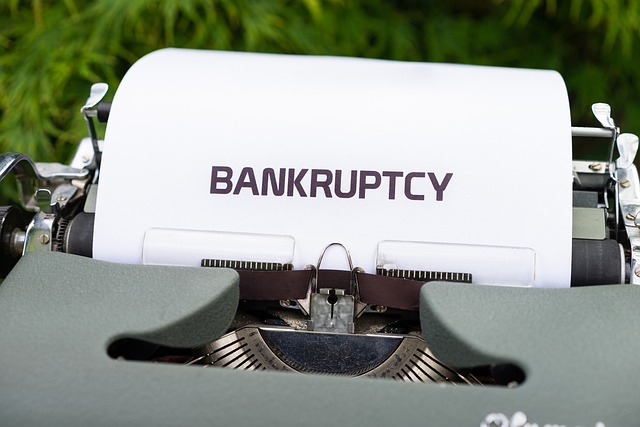Bankruptcy is often seen as a failure in the business world, but for many entrepreneurs, it can be a strategic decision or an unavoidable consequence of various challenges. The more you know about it, the more strategic you can be with your approach to business.
Why do so many entrepreneurs file for bankruptcy? And what should you do if you think bankruptcy might be a viable option for you?
The Basics of Bankruptcy
It’s tempting to think that bankruptcy is the simple legal process of discharging all debt, with the person claiming bankruptcy carrying that stigma for the rest of their life. But in reality, there are many different types of bankruptcy, and the legal complexity of bankruptcy cases means that no two business bankruptcy filings are identical in nature.
According to attorney Rowdy G. Williams, “People often don’t realize that, in many cases, you don’t actually have to lose any of the things that are important to you – like your house. You can discharge your debts and eliminate many of your bills, while giving yourself a second chance at starting another business.”
Depending on your financial circumstances, the nature of your business, and how you choose to proceed, filing for business bankruptcy may mean totally discharging all debts, reorganizing those debts, or selling off assets to pay creditors. Chapter 7, Chapter 11, and Chapter 13 bankruptcy are some of the most common options, and each of them come with pros and cons.
That’s why it’s so important to talk to an attorney about your business bankruptcy options; only with the help of a competent attorney will you be able to determine the best path forward for your unique business.
The Top Reasons Entrepreneurs Often File for Bankruptcy
So what are the top reasons why entrepreneurs end up filing for bankruptcy?
The short answer is that the business is not doing well. But these are the underlying reasons behind that:
- Insufficient capital. Businesses need money to thrive. In the early stages of starting a business, many entrepreneurs gather capital, withdrawing from personal funds, borrowing money, talking to venture capitalists, and engaging with angel investors. Capital is initially used for purchasing assets, paying for labor costs, and securing initial resources. But once that capital runs out, and there’s not something to replace it, the business doesn’t have many options left. Insufficient capital has killed countless businesses in the past and will continue killing countless businesses in the future.
- General cash flow issues. Cash flow issues can also be problematic. Even if you have a decent store of capital, it will quickly be depleted if you’re consistently spending more money than you make. There are many potential root causes of this issue, not all of which are attributable to poor business planning. It might be that you’re spending too much money on unnecessary services, but it might also be that your customers aren’t paying you on time. Either way, negative or insufficient cash flow can ruin your business’s finances.
- Economic downturns. Economic downturns can wreck even the most stable, successful businesses if they’re not prepared. During an economic downturn, people become less likely to spend money and businesses start scrutinizing their financial decisions more closely. If your product or service is deemed unnecessary, you could suffer a catastrophic decline in revenue. Without proper preparation, it could ruin your business.
- Market fluctuations. Similarly, fluctuations in market dynamics can negatively impact your business. If consumers stop demanding your products and services for any reason, or if you suddenly have to deal with new competitors with superior products and services, your business won’t be long for this world.
- Excessive debt. Debt can be useful for businesses, equipping them with the advantage of financial leverage. However, it’s also possible to over-leverage yourself. Without proper planning, excessive debt can artificially burden your business, making your finances less stable and increasing your total costs.
- Rapid expansion. Expanding a business is typically a good move, allowing you to multiply your revenue and increase your business’s visibility and reach. However, it’s dangerous to expand too quickly or too aggressively. Expansion costs a lot of money and introduces new problems; if you’re not prepared for those complications, you may end up seeking bankruptcy as a final solution.
- Operational issues. Many businesses also collapse due to internal operational issues. Bad leadership, poor decision making, and uncoordinated teams can bring ruin to even the most promising businesses.
Avoiding Bankruptcy
There are some simple strategies that can help you avoid bankruptcy, even as a measure of last resort, as an entrepreneur:
- Practice robust financial planning. The more thoroughly you examine and plan your finances, the better. It’s a good idea to hire a professional, experienced financial advisor, especially if you don’t have much financial experience as an entrepreneur.
- Make cash flow the priority. Cash flow is arguably the highest priority for business longevity. If you can maintain positive cash flow consistently, most of your other financial problems will eventually disappear. Maintaining positive cash flow isn’t always easy, but it is necessary if you want to avoid an eventual collapse.
- Build resilience into your business. Resilient businesses can withstand a great deal of chaos and specific challenges. Build resilience into your business by diversifying your revenue streams, coming up with novel ideas to stay ahead of your competitors, and finding ways to stay stable during market downturns.
- Create contingency plans. Finally, come up with contingency plans for various threatening scenarios. What are the biggest risks your business faces? How can you control and guard against those risks?
Planning for Bankruptcy
If you do find your business in tough financial circumstances, bankruptcy could be a viable answer. However, there are many factors to consider and many decisions you’ll need to make throughout this process. Gather as much financial data on your company as you can, find an inexperienced business bankruptcy attorney, and enter an initial consultation to see what your best options might be.








